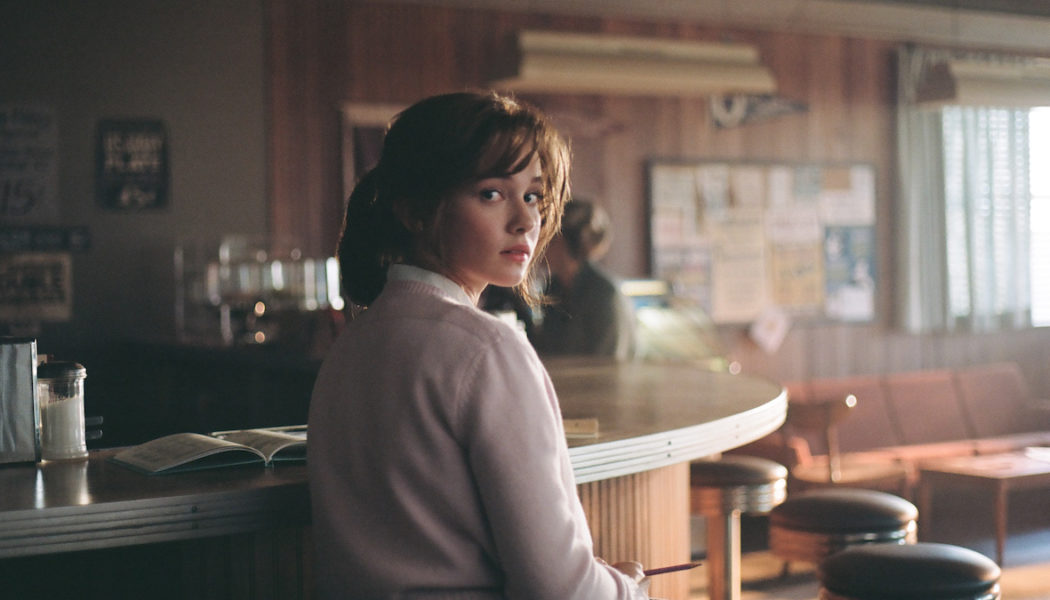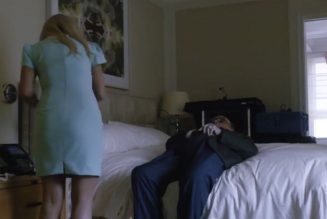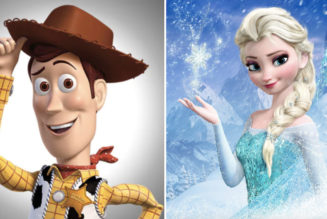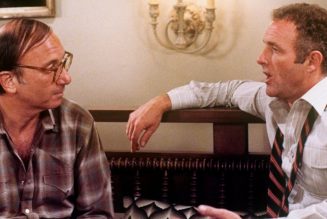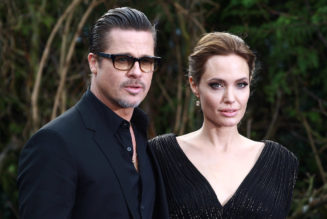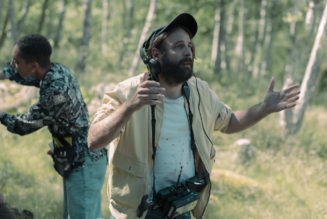The Pitch: Elvis Presley, it seems, has had an outsized role in pop culture in the last few years. When it was revealed that two acclaimed directors would be taking on the life of The King through film, comparisons were inevitable — but, after all the discourse, it turns out that Baz Lurhmann’s maximalist, Austin Butler-driven epic and Sofia Coppola’s Priscilla don’t even really feel like they exist in the same universe as one another.
As the title suggests, the focus of this film is firmly on the first and only wife of Elvis. We first meet Priscilla (an utterly remarkable Cailee Spaeny) at age 14, while living on the military base in West Germany where her father is stationed. Spaeny looks and sounds so, so terribly young as Priscilla that you can’t help but hope the romantic events of the film won’t begin for a while — but begin they do, when she finds herself invited to a party at the home of Elvis (Jacob Elordi). The superstar (24 years old at the time) is immediately smitten with the teenager, confessing to her that he misses home and finds comfort in speaking with her.
The film then spends its time strolling through the years Elvis and Priscilla spent together. Priscilla Presley herself served as an executive producer on the film, and Coppola’s script is based off Presley’s autobiography, Elvis and Me.
Related Video
</p>
<p> ” data-medium-file=”https://consequence.net/wp-content/uploads/2023/11/priscilla-still-1.jpg?quality=80&w=300″ data-large-file=”https://consequence.net/wp-content/uploads/2023/11/priscilla-still-1.jpg?quality=80&w=1024″ src=”https://www.wazupnaija.com/wp-content/uploads/2023/11/priscilla-review-sofia-coppola-unravels-elvis-presley.jpg” alt=”priscilla cailee spaeny sofia coppola” class=”size-full wp-image-1334779″ width=”1200″ height=”675″></p>
<p id=) Priscilla (A24)
Priscilla (A24)
Always On My Mind: Priscilla is an exercise in anxiety. The events of the film have the viewer braced for something terrible to happen almost the entire time — which does occur, but also doesn’t. There’s a frankness to the way the story is told, because this lens on Elvis doesn’t feel accusatory as much as it feels deeply honest. From the jump, we get the sense that the superstar genuinely cares for this person and develops a love for her. However he is also, with certainty, being manipulative and grooming this young woman into his ideal partner, a person stripped of her own agency and interiority.
Their romance is a slow but very slippery slope. We see how small compromises from Priscilla’s rightfully concerned parents snowball into her moving across the world and into Graceland before she’s even graduated high school. Everyone around her eventually finds themselves just as charmed as the young woman, and Priscilla herself perseveres against the red flags constantly rising and falling around her.
But when things are good, they’re incredible — the viewer gets swept up in the sweet moments of domesticity, the hazy glow of a summer pool party, or the excitement of first-class flights and blank checks. Coppola’s pacing places us directly in the pendulum of their relationship’s highs and lows, and anyone who has ever found themself besotted with a pop star will understand the decisions Priscilla makes.
Can’t Help Falling: If there’s one thing Sofia Coppola can communicate through film, it’s the devastation of being a young woman who feels utterly trapped. Every aspect of Priscilla’s life is controlled according to Elvis’ whims, from the fashions he prefers on her to the philosophies he’s curious about at the moment. In Graceland, Priscilla evokes the image of a beautiful bird in an even more stunning cage. She’s discouraged from making friends at school as “Graceland doesn’t allow strangers,” and forbidden from having an after-school job.
</p>
<p> ” data-medium-file=”https://consequence.net/wp-content/uploads/2023/11/priscilla-still-3.jpg?quality=80&w=300″ data-large-file=”https://consequence.net/wp-content/uploads/2023/11/priscilla-still-3.jpg?quality=80&w=1024″ src=”https://www.wazupnaija.com/wp-content/uploads/2023/11/priscilla-review-sofia-coppola-unravels-elvis-presley-1.jpg” alt=”priscilla jacob elordia elvis review ” class=”size-full wp-image-1334780″ width=”1200″ height=”675″></p>
<p id=) Priscilla (A24)
Priscilla (A24)
